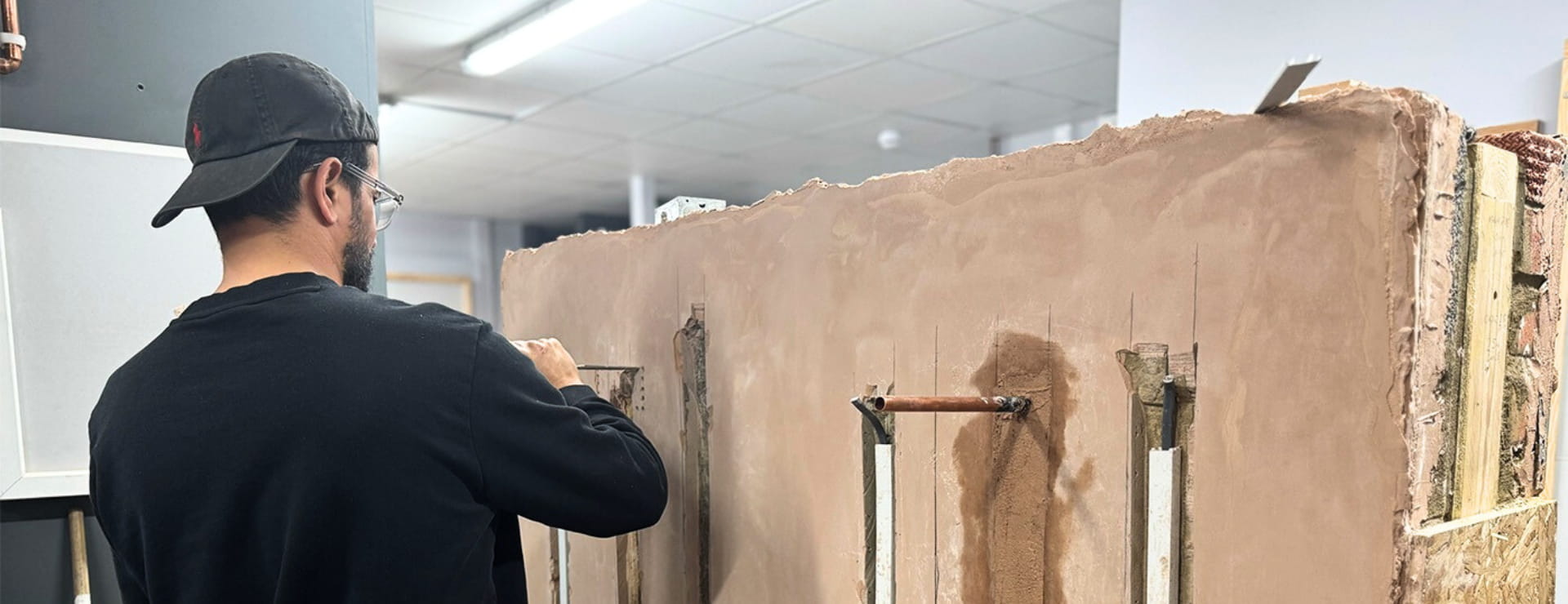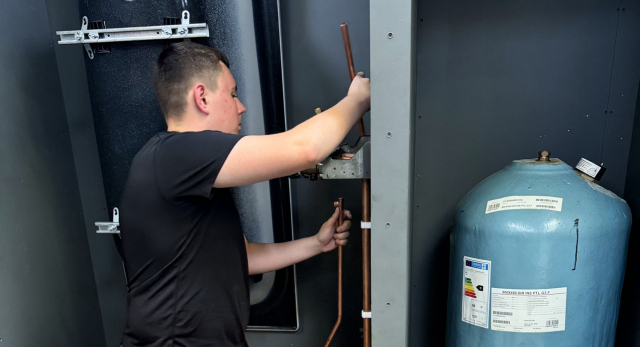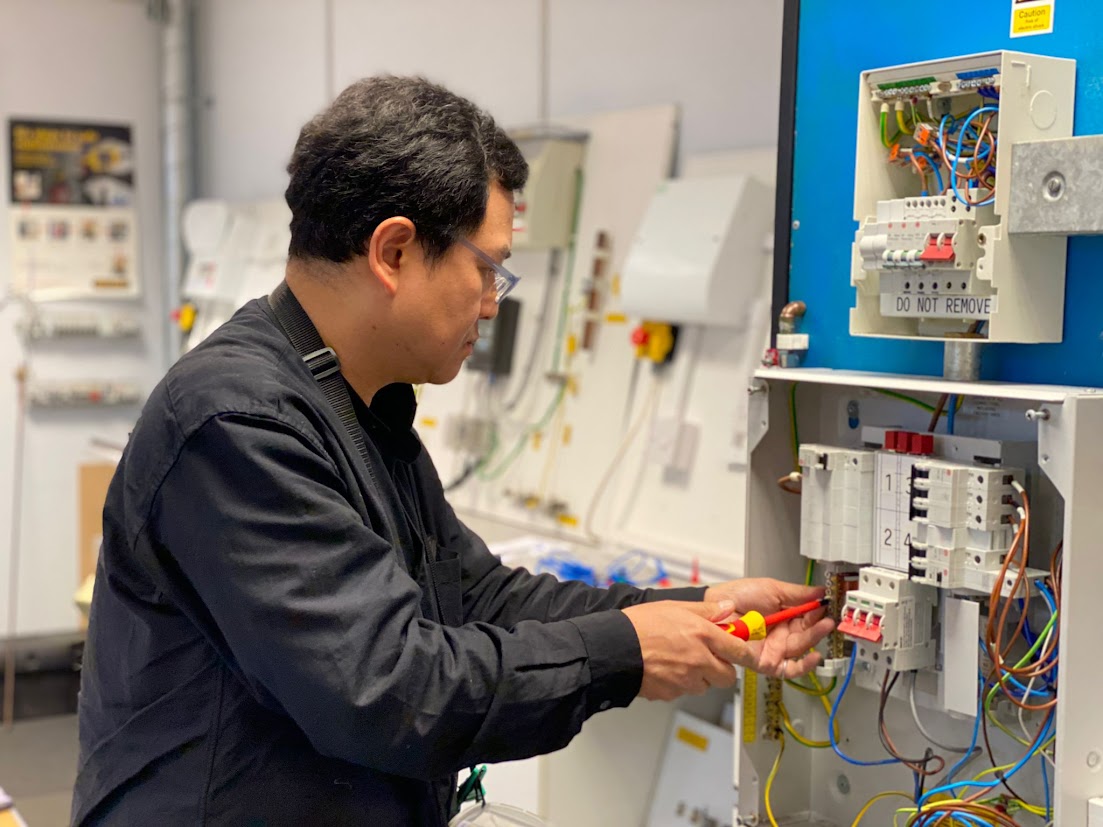Choosing between university and vocational training is a critical decision for school-leavers in the UK. University offers a traditional academic route but comes with significant cost and debt, while trade careers such as plumbing, electrics, and gas engineering provide quicker, more affordable entry into skilled, in-demand jobs. Trades offer practical, hands-on learning, often suit diverse learning styles, and allow you to earn while you train. They deliver a clear, flexible career path with opportunities for business ownership, specialisation, and roles in fast-growing sectors like renewables. Ultimately, the best choice depends on your goals, lifestyle, and learning preferences.

Picking what to do after finishing school is a big decision. Many students automatically consider university, but vocational training is an increasingly popular alternative. Learning a skilled trade like plumbing, gas engineering, or electrical installation has many advantages, and it can be a better option if you are not sure that a degree is the right choice for you.
Everyone’s situation is different. For some careers, a degree is essential. You can’t be a doctor, engineer or lawyer without going to uni. Some people also thrive in an academic environment. But if you’re unsure about spending the next 3+ years in lectures and seminars, it’s worth considering the trades. Choosing a trade can help you avoid debt, and you can start earning as soon as you qualify (maybe even before). The current skills gap in the building services trades also means that you will be in high demand, making it easier to find a job once you’ve qualified.
Below, we’ll explore four major reasons a trade career can be a smart choice for school-leavers. We’ll keep it balanced, so you can make an informed decision on the path that fits you best.
1. Learning a Trade Costs Less (and Can Even Pay You)
University Tuition Fees: The Real Cost
One of the biggest differences between university and trade training is the cost. University tuition fees in the UK are expensive. With the cap for 2025-2026 full-time courses set at £9,535, this adds up to a cost of over £28,000 for a three-year degree (or £38,000 for a four-year course). And that’s not counting living expenses like rent, food, and books. An average English university student today will graduate with £53,000 of debt. And they’ll be paying that back for decades, with monthly repayments kicking in as soon as they earn above £25-28k a year. In short, university can leave young people with a huge financial burden as they start their careers.
Trade Course Fees: A Fraction of the Cost
Learning a trade, on the other hand, is much cheaper. Vocational courses and trade college programs generally have lower fees than academic degrees. For example, Logic4training’s comprehensive Domestic Gas Heating Installer course (an intensive program for aspiring gas engineers) starts at £5,745 + VAT, and our Plumbing & Heating Installer Course starts at £2995 + VAT. This is far less than university tuition, and you won’t incur the same level of debt for living costs because trade courses take less time and offer more flexibility (more on that shortly). This can help you to save even more money compared to university and get started with your life sooner, as one of our trainees, Ryan Scott, found out.
Low Debt, Lower Risk
Overall, choosing vocational training means taking on much lower debt and financial risk for your education. There’s another route into the trades that can eliminate training costs entirely: apprenticeships. In an apprenticeship, you work for an employer in your chosen trade while getting training, and you earn a wage throughout. That means instead of paying tuition, you’re getting paid to learn. For someone worried about the debt from university, an apprenticeship is an attractive option. You can come out with no student loan at all, some years of work experience, and a nationally recognised qualification. Logic4training offers apprenticeships in Gas Engineering and Smart Meter Installation, which are great pathways to start working and earning in the gas and energy sectors.
Apprenticeships: Earning While You Learn
While university students rack up debt, apprentices can be financially ahead, having earned income during the same period. In short, from a financial perspective, opting for a trade is often the more affordable choice, and it might even put money in your pocket.
2. Faster Training and More Flexibility to Fit Your Life
Faster Routes into the Trades
Time is another key factor. A typical university degree takes at least three years full-time (more if you do a placement or a longer course), and you won’t be working full-time in your field during that period. Some trades have a similar timeline if you go through a traditional apprenticeship. For instance, completing an apprenticeship to become a fully qualified electrician or gas engineer might take around four years, which is comparable to the length of a degree. The difference is that during an apprenticeship, you’re gaining practical experience and getting paid a salary, instead of sitting in lectures and accumulating debt. Even so, not everyone wants to wait 3-4 years before they’re fully qualified.
The good news is that there are faster routes into many trades. Private training providers (like trade colleges and specialised training centres) offer intensive courses that can get you qualified in a shorter timeframe. For example, Logic4training’s new entrant programs allow students to study intensively and gain the necessary qualifications in as little as 12 to 18 months in many cases. You do have to be wary of any scheme promising to turn you into a fully-fledged electrician or plumber in just a few weeks. Fast track courses like this aren’t realistic, because trades require hands-on experience to build competence. You’ll typically need at least a year or more of training, including practical work experience under supervision, to become confident and competent in the job. But even 18 months of focused training is a lot quicker than a 3-year degree, meaning you can start your career and begin earning sooner.
Flexibility to Fit Around Your Life
Another advantage of vocational training is flexibility. Unlike universities, it’s common for people training in the trades to have other life commitments. People training to work in the trades come from all walks of life, so evening and weekend classes are available, and some programs let you learn at your own pace or in blocks. This flexibility means you can fit your training around part-time work or other responsibilities. It’s a stark contrast to the rigid structure of university semesters and timetables.
So, whether you choose a faster private course or a longer apprenticeship, the trade path gives you options to earn while you learn and to tailor your training to your life. You could be working in the field and gaining real-world experience much sooner than many of your uni-going peers. By the time a university student graduates, a trade school graduate could already be a year or two into their career, with a salary and professional skills to show for it.

3. Hands-On Learning Suits Many People Better
Academic vs Practical Learning Styles
Think about how you prefer to learn. University education is largely academic. You’ll be attending lectures, writing essays, studying textbooks, and maybe doing the odd lab or project. If you love diving into theory and don’t mind spending long hours in libraries or staring at a screen, that might be fine. But not everyone learns best that way. If the idea of sitting through lectures and exams makes your eyes glaze over, you might prefer the active, hands-on learning that vocational training provides.
Practical Training: Learning by Doing
Trade courses are designed to teach you by doing. There are still some important theory lessons: Plumbers and electricians need to understand scientific principles and safety regulations in order to qualify. But a huge part of trade school, the majority of your time, is spent on practical tasks and real-world problem-solving. For example, an electrical trainee at Logic4training will spend lots of time working on state-of-the-art training rigs, practicing wiring and fault-finding under the guidance of instructors who have years of real industry experience. It’s learning by example and repetition, not just by reading about it. Many people find this kind of interactive education far more engaging than an academic classroom. You’re up on your feet, using tools, and applying what you learn immediately.
A More Active (and Varied) Work Life
This hands-on approach extends beyond training. After qualifying in the trades, your day-to-day work life will also be more active and varied. Choosing a trade career means you won’t be stuck behind a desk and computer all day. Your job will involve moving around, using your hands and brain to solve problems, meeting different people and working in different locations: As a gas engineer, you might be out installing a heating system in a home one day and then diagnosing a boiler issue at a business the next. As an electrician, one week you could be wiring a new building, and the next you’re inspecting or fixing electrical systems elsewhere. This variety can keep work interesting and even help keep you physically fit, since you’re not sedentary all day.
Accessible for a Wider Range of Learners
Another big factor is that vocational education can be more accessible if you didn’t thrive in a traditional school setting. Not everyone comes out of school with top grades or a desire to do more exams, and that’s okay. Trade training often doesn’t require high academic qualifications to get started. To begin an entry-level vocational qualification (like an NVQ Level 1 or 2 in a trade), you usually don’t need any formal prerequisites. These beginner levels are roughly equivalent to GCSEs and are open to people who want to learn a skill from scratch. Even at the diploma level, while many courses ask for GCSEs in English and Maths, there are often alternative pathways or additional short courses to help you meet those requirements if you don’t have the grades. The emphasis is on teaching you the trade skills directly, not filtering you out based on exam results in unrelated subjects.
The bottom line: if you’re someone who learns better by doing rather than by studying abstract theory, or if you’ve felt uninspired by traditional academics, vocational training could be a breath of fresh air. It’s a chance to excel in a different learning environment, one geared toward practical skills and job preparation rather than just aiming for exam scores. Many people who didn’t enjoy school find they flourish in trade school once they experience the more hands-on, relevant style of learning. And for those who did do well at school, you might discover that applying your smarts to real-world technical problems is even more rewarding than academic work. In the trades, problem-solving and critical thinking are huge. The difference is that you get to see tangible results from your efforts every day and balance working your mind with practical skills and knowledge.
4. Clear Career Path with Fulfilling, Flexible Work
A Direct Route to a Meaningful Career
One common frustration for university grads is that a degree doesn’t guarantee a related job. You might spend three years studying a subject you love, only to find that the graduate job market for it is unpredictable. In contrast, when you train in a specific trade, you have a much clearer path to a particular career. If you qualify as a plumber, electrician, or gas engineer, you know exactly what type of work you’re prepared to do, and there’s a straightforward demand for that work in the economy. The skills you gain are practical and needed, which means you’re less likely to end up underemployed in an unrelated field.
Career Growth and Specialisation Opportunities
There’s a ton of flexibility and opportunity to grow as a tradesperson. Once you have your core qualifications and some experience, you aren’t limited to one rigid path; you can shape your career to fit whatever goals you have. For example, you might choose to become your own boss after a few years and start a business. Many electricians and plumbers do this and create profitable and successful businesses. If entrepreneurship isn’t your thing, you can also choose to specialise further in an area that interests you. There’s a lot to choose from, like focusing on renewable energy installations, commercial gas, and even expanding your skills to another, related trade (e.g., it’s common for qualified plumbers to get gas qualifications). Some experienced tradespeople even move into training or consulting roles, using their knowledge to teach others or advise on projects.
Emerging Opportunities in Renewable Technologies
Another exciting aspect of entering the trades now is the chance to be part of emerging industries. The UK is pushing toward greener technologies to combat climate change, which means renewable energy skills are in demand. If you train as an electrician or a heating engineer today, you create the foundation to become a renewables installer with a bit of additional training. Installing solar panels, heat pumps, EV charging points, and other green tech is a growing market, supported by government incentives to encourage more workers to enter these fields. In other words, it’s a particularly exciting time to qualify in the building services trades because you can help shape a greener future while also benefiting from new business opportunities in these up-and-coming specialisations.
Skills Travel with You
Geographically, trades can offer freedom too. Skilled tradespeople are needed everywhere, in every town and city. Your skills are often transferable across regions (and even countries, with some additional certification). So you can move to a new area and likely find work, which is great if you don’t want to be tied down. Compare that to graduate careers, where jobs are mostly concentrated in London and other big cities, where living costs are higher. In the trades, as long as there are buildings and people, they will eventually need you to keep their lights on and their water flowing.
Making Your Decision: What’s Right for You?
University: When It’s the Best Fit
At the end of the day, university and trade school are both valid paths but they suit different people and lead to different lifestyles.
University might be right if you have a specific profession in mind that requires a degree (like becoming a teacher, doctor, scientist, etc.), or if you truly enjoy academia and research. It can also offer a broad educational experience, and some people value the social and developmental aspects of student life. However, it’s not the only route to success, and it’s not necessarily the “best” route for everyone.
The Trades: Ideal for Practical Learners
The trades offer a more direct path into a career, with practical training, lower costs, and the chance to start earning and building experience sooner. It’s a path where success isn’t measured by exams or essays, but by the skills you develop and the work you do. For many school-leavers, a trade can be an ideal choice, especially if you are eager to get out in the real world and avoid the burden of student debt. And remember, opting for vocational training doesn’t close doors; if anything, it opens a new set of opportunities in industries that are hungry for talent.
Weigh Up Day-to-Day Work Life
Logic4training has seen countless individuals thrive after choosing the trade route. If you’re considering a career in trades like plumbing, gas engineering, or electrics, there are plenty of resources and support to help you get started. You can explore our specialised new entrants courses that take you from zero experience to job-ready in your chosen trade, or even look into our apprenticeship programme if you prefer to earn while you learn.
Seek Advice and Make an Informed Choice
It’s wise to gather as much information as you can. Talk to people who have been to university and those who went to trade college. Consider what day-to-day work actually looks like in the careers you’re contemplating. Think about your financial situation and how comfortable you are with debt. And most importantly, think about what makes you excited to get up in the morning. Is it the thought of conducting research or writing papers, or do you get more excited imagining fixing things, building systems, and getting out there in the field?
Whichever path you choose, make sure it’s a path that feels right for you, not just what others expect. University isn’t a one-size-fits-all solution, and the trades aren’t a “consolation prize”. They’re a powerful, rewarding option in their own right.
With the current landscape in the UK (rising uni costs, competitive grad job market, and a booming demand for tradespeople), this is the perfect time to give serious thought to a career in the trades.
If you’d like to discuss training routes, qualifications, or how to begin a trade career, we at Logic4training are happy to help. Get in touch with us and we will happily talk you through the routes available. Your future is in your hands, and whether it’s through university or a trade, the goal is the same: build a career and life you’ll love. Good luck with whichever path you choose!









